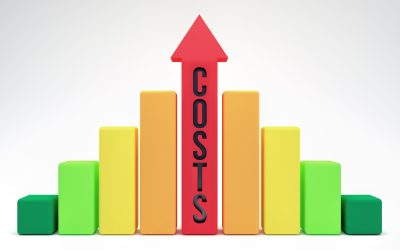
If you forgot what compounding interest was, let’s refresh. Compounding interest is the process by which the interest earned on an investment is reinvested so that the initial investment grows over time. It may not seem like it, but compounding returns is a powerful tool that can significantly increase the value of an investment over the long term, making it an important concept to understand when planning for retirement.
One of the key benefits of compounding interest is that it can help your investments grow significantly over time. For example, consider an initial investment of $10,000 that earns an annual interest rate of 6%. After one year, the investment would be worth $10,600. However, if the interest earned in the first year is reinvested and the investment continues to earn 6% annually, the value of the investment would grow to $11,236 after two years. As the investment continues to grow and compound over time, the value will continue to increase at an exponential rate.
Compounding Interest to Fight Inflation
In addition to increasing the value of an investment, compounding interest can also help to reduce the impact of inflation on your retirement savings. You’ve probably been feeling the effects of inflation on your wallet, but just to be clear, inflation is the general increase in the price of goods and services over time, which means that the purchasing power of your money decreases as inflation increases. By earning compound interest on your investments, you can offset the impact of inflation and help to preserve the purchasing power of your money.
Compounding Interest as an Investment Strategy
Another benefit of compounding interest is that it can help you reach your retirement goals faster. For example, if you have a goal of saving $500,000 for retirement, you may be able to reach this goal faster by earning compound interest on your investments. This is because the more interest you earn, the faster your investment will grow.
There are several factors that can affect the amount of compound interest you earn, including the interest rate, the frequency of compounding, and the length of time your investment is held. The higher the interest rate, the faster your investment will grow. Similarly, the more frequently your investment is compounded, the faster it will grow. For example, if your investment is compounded annually, it will grow more slowly than if it is compounded quarterly or monthly. Finally, the longer you hold your investment, the more time it has to grow and compound, which can result in significantly higher returns over the long term.
Compounding Interest and Your Portfolio
In conclusion, compounding interest is a powerful tool that can significantly increase the value of your retirement savings over time. By earning compound interest on your investments, you can offset the impact of inflation, reach your retirement goals more quickly, and preserve the purchasing power of your money. Understanding the concept of compounding interest and how it works can be an important part of planning for your retirement and achieving your financial goals.
If you have further questions about how your retirement savings can work to meet your financial goals, feel free to reach out to us today for a complimentary review of your finances.



